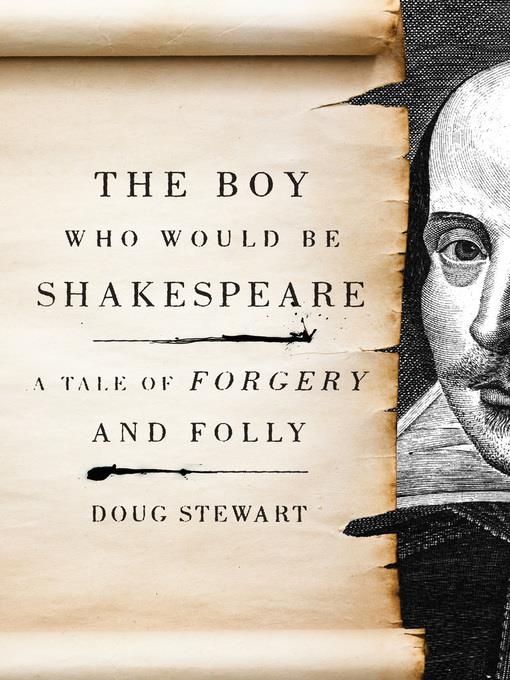
The Boy Who Would Be Shakespeare
A Tale of Forgery and Folly
کتاب های مرتبط
- اطلاعات
- نقد و بررسی
- دیدگاه کاربران
نقد و بررسی

March 22, 2010
William Henry Ireland was an unassuming law clerk in Georgian England when he seemingly stumbled on the greatest literary find of his generation-a chest of documents in the home of an unnamed patron, full of Shakespeare's receipts, private letters, and a draft of an unpublished play. This find brought fame and notoriety to Ireland and his father, Samuel, a collector with a low opinion of his son. Soon, however, that fame turned to ignominy when it is was revealed that Ireland's Shakespearean trove was entirely fabricated; perhaps even more tragic was Samuel's unwillingness to believe his son had the talent to execute the forgery. Stewart's exhaustively researched examination of the Irelands' rise and fall is as entertaining as it is informative; modern readers, accustomed to Shakespeare's place of reverence, will be surprised to learn how ignorant Georgian England was of his work. Where Stewart's research truly shines is in accessing Ireland's human motivations-his desire for approval and artistic legitimacy, not profit, distinguishes him from other cons, making him neither wholly despicable nor pitiable. History and literary enthusiasts will be delighted with this smart investigation into a high-minded hoax.

March 15, 2010
In 1795, William-Henry Ireland, a 19-year-old lawyer's apprentice of no great promise, finally stumbled upon a way to gain approval from his father, Samuel. But even when the son provided the father with one of the most sought-after articles in all of Englanda paper in the hand of William Shakespearethe sire was unimpressed. William-Henry, an aspiring writer himself, then perpetrated one of the greatest literary hoaxes in history: If one sheet of paper could convince (but not please) his father, perhaps the man would be more satisfied with original drafts of Shakespearean plays? Or...an unpublished work? He never anticipated the fanatical public interest that grew when Samuel Ireland made his son's "discoveries" public. Finally, when Shakespeare's "newly discovered" play "Vortigern" was staged by the Drury Lane Theatre, William-Henry's fate was sealed and his name relegated to infamy. Even parts of his confessions are suspect, writes Stewart in this vivid dissection of the folly of human nature. VERDICT This is a great book club choice and an excellent selection for readers of literary thrillers, history, or social science.Audrey Snowden, Cleveland P.L.
Copyright 2010 Library Journal, LLC Used with permission.

April 15, 2010
William-Henry Ireland (17751835) earned his footnote in literary history in the 1790s, crafting a series of forged letters, documents, and manuscripts all by or about William Shakespeare. He and his antiquarian father, Samuel, claimed they were the real thing. Stewarts fascinating history recounts William-Henrys short, frantic rise and fall, his brush with fame, and his subsequent lifelong infamy. He places William-Henrys remarkable achievement, which for a time fooled many of Englands literary and other notables, including James Boswell, in the context of eighteenth-century England, a time when literacy was rising, the gossip-filled newspaper business booming, and the country was hungry for any artifact connected to the Bard. But Stewarts real achievement lies in how grippingly he tells William-Henrys story, so that it climaxes in a disastrous premier of William-Henrys faked lost Shakespeare play Vortigern and Rowena at Londons famed Drury Lane Theatre in 1796 as well as in how much, by the end of the book, he has got us to care about the young, hapless fraud.(Reprinted with permission of Booklist, copyright 2010, American Library Association.)

























دیدگاه کاربران